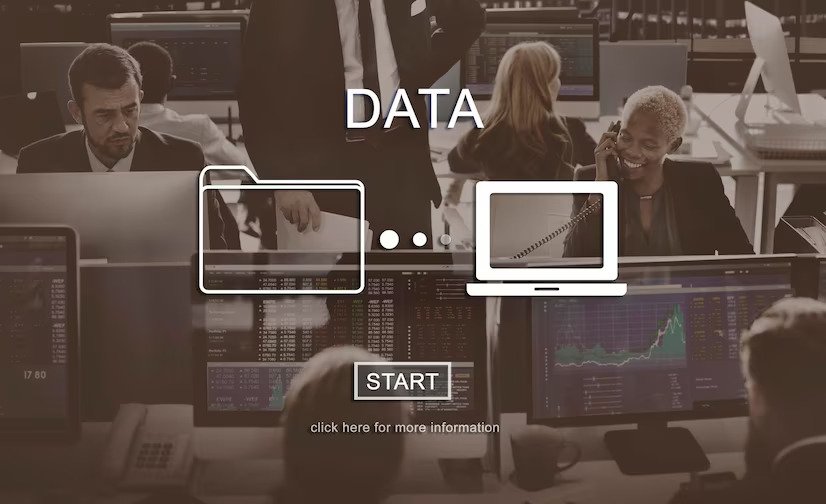ClickHouse is an open-source columnar database management system known for its speed and efficiency in analytical processing.
PostgreSQL, on the other hand, is a powerful open-source relational database system with a wide range of features. It’s important to explore the diverse use cases and industry applications of these two databases in order for you to choose the right platform.
ClickHouse Use Cases And Industry Applications
Analytics And Business Intelligence
ClickHouse, as per its own account, excels in analytics and business intelligence (BI) applications due to its exceptional query performance and real-time data processing capabilities. It is widely adopted in industries where timely insights and data-driven decision-making are critical.
For instance, e-commerce companies utilize ClickHouse to analyze user behavior, track product sales, and optimize marketing campaigns in real-time. ClickHouse’s columnar storage structure and compression techniques make it efficient in handling large volumes of historical data, making it well-suited for generating complex reports and dashboards.
Real-Time Data Processing
Real-time data processing is vital in various sectors, including finance, telecommunications, and cybersecurity. ClickHouse’s ability to ingest and analyze data in real time-positions it as an excellent choice for these applications.
For instance, financial institutions leverage ClickHouse to monitor stock market data, detect anomalies, and execute trades swiftly. In the realm of cybersecurity, ClickHouse helps organizations identify and respond to security threats in real-time by analyzing log and event data.
AdTech And Marketing
AdTech and marketing industries rely heavily on data to optimize ad campaigns, target audiences effectively, and measure campaign performance. ClickHouse plays a crucial role in these domains by enabling the processing and analysis of massive datasets from various sources.
Advertisers use ClickHouse to track ad impressions, clicks, and conversions, allowing for real-time adjustments to ad strategies. Additionally, ClickHouse’s support for custom, user-defined functions (UDFs) facilitates advanced analytics and data enrichment in AdTech applications.
IoT And Time-Series Data
The Internet of Things (IoT) generates vast amounts of time-series data from sensors, devices, and machines. ClickHouse’s columnar storage, compression techniques, and support for time-series data make it an ideal choice for IoT applications.
Industries such as manufacturing, agriculture, and energy leverage ClickHouse to monitor equipment health, predict maintenance needs, and optimize operations. ClickHouse’s efficient storage and query performance enable rapid analysis of high-frequency sensor data, contributing to data-driven decision-making in IoT ecosystems.
PostgreSQL Use Cases And Industry Applications

Source: https://www.postgresql.org/
Relational Database Management
PostgreSQL, according to them, is renowned for its robust support of relational database management. It is widely adopted in various industries, including finance, manufacturing, and logistics, where structured and well-defined data models are essential.
Organizations leverage PostgreSQL to manage critical business data, including customer information, financial records, and supply chain data. Its ACID compliance, extensibility through user-defined functions, and support for complex queries make it a reliable choice for maintaining data consistency and integrity.
Web Applications
PostgreSQL is a popular choice for web application development. Its versatility, performance, and support for JSON data types make it an excellent fit for modern web applications that demand scalability and flexibility. Many content management systems (CMS), e-commerce platforms, and social media sites use PostgreSQL as their backend database.
Geographic Information Systems (GIS)
Geographic Information Systems (GIS) rely on spatial data management, and PostgreSQL’s PostGIS extension makes it a preferred database for GIS applications.
It provides spatial data types, indexing capabilities, and geospatial functions that support spatial analysis, mapping, and location-based services. Industries like urban planning, environmental monitoring, and logistics benefit from PostgreSQL’s GIS capabilities to store, analyze, and visualize geospatial data effectively.
Healthcare And Life Sciences
PostgreSQL is widely adopted in healthcare and life sciences for its ability to handle complex and sensitive data. Healthcare providers use it to store electronic health records (EHRs), patient demographics, and clinical data securely. PostgreSQL’s support for compliance with healthcare regulations, such as HIPAA, makes it a suitable choice for maintaining patient privacy and data security.
Furthermore, life sciences organizations rely on PostgreSQL for managing genomic data, drug discovery research, and clinical trial data due to its scalability and extensibility.
Strengths And Weaknesses Of ClickHouse
ClickHouse Strengths
- High Performance. ClickHouse excels in analytical processing and real-time data ingestion, making it ideal for applications requiring rapid data analysis.
- Columnar Storage. Its columnar storage structure and efficient compression techniques optimize storage and query performance for large datasets.
- ClickHouse is horizontally scalable, allowing it to handle growing data volumes and high concurrency.
- Time-Series Data. ClickHouse has native support for time-series data, making it well-suited for IoT and real-time monitoring.
ClickHouse Weaknesses
- Limited SQL Compatibility. ClickHouse’s SQL dialect may not be as feature-rich or compatible with standard SQL as PostgreSQL.
- Complex Setup. Setting up and configuring ClickHouse for specific use cases can be more complex than traditional databases.
Strengths And Weaknesses Of PostgreSQL
PostgreSQL Strengths
- PostgreSQL is known for its reliability, data integrity, and support for ACID compliance, making it suitable for critical applications.
- Its extensibility, support for user-defined functions, and diverse data types enable it to handle a wide range of use cases.
- Community Support. PostgreSQL has a robust open-source community, ensuring ongoing development and a wealth of resources.
- Spatial Data. With PostGIS, PostgreSQL excels in spatial data management and geographic information systems.
PostgreSQL Weaknesses
- Analytical Performance. While PostgreSQL is capable of handling analytical workloads, it may not match ClickHouse’s performance in this specific domain.
- Complex Queries. Complex queries can be resource-intensive, and optimization may require tuning and expertise.
- Scaling Challenges. Scaling PostgreSQL horizontally can be more complex compared to some distributed databases like ClickHouse.
Choosing The Right Database For Your Use Case
Choosing between ClickHouse and PostgreSQL depends on your specific use case and requirements. Consider the following factors:
- Data Type. If your application deals primarily with time-series data or requires real-time analytics, ClickHouse may be the better choice.
- For applications with complex relational structures and diverse data types, PostgreSQL’s flexibility may be advantageous.
- Evaluate your performance requirements and assess whether ClickHouse’s analytical speed or PostgreSQL’s reliability is more critical.
- Community and Ecosystem. Consider the availability of resources, community support, and existing tools or libraries that align with your chosen database.
Ultimately, the right choice depends on your unique project needs, and a careful assessment of your use case will guide your decision.
Read Also:




























